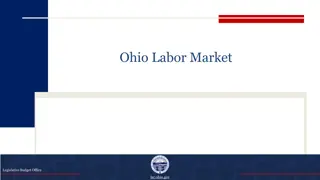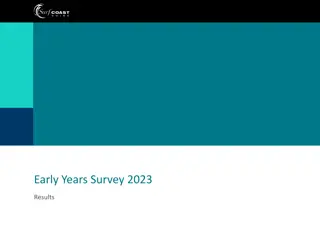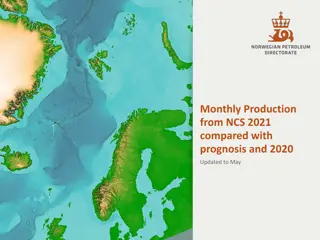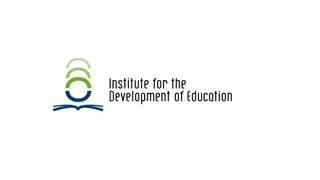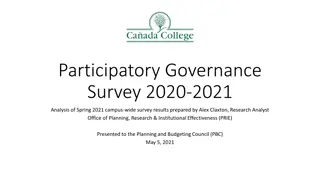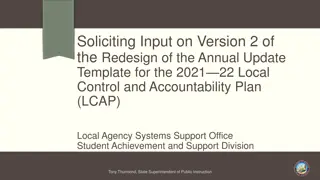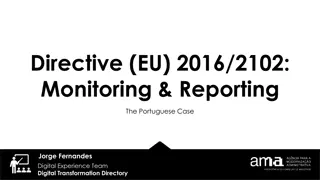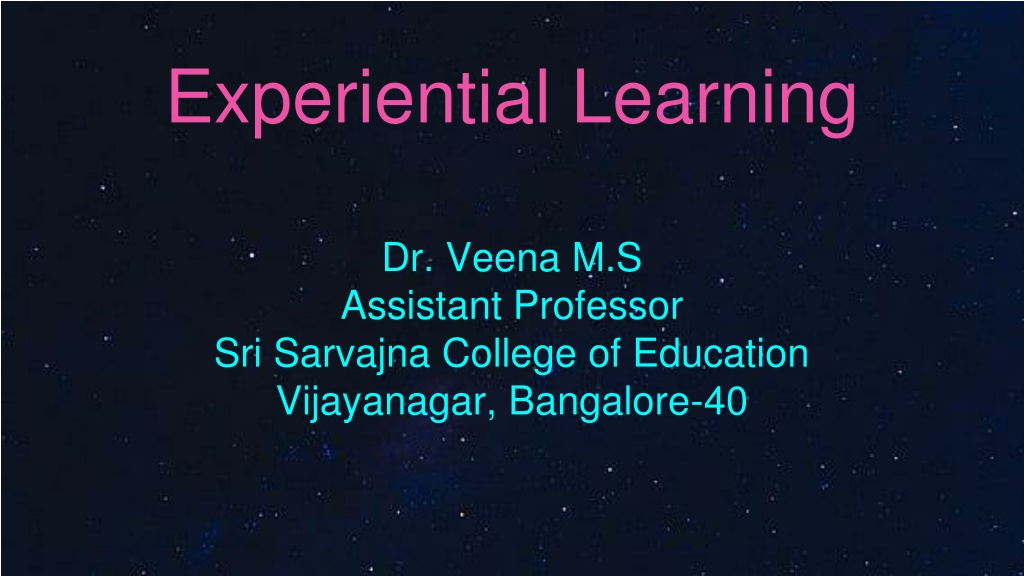
Understanding Experiential Learning: Theory and Benefits
"Explore the concept of experiential learning, its significance in the classroom, and how it enhances students' engagement and understanding. Discover the background of experiential learning, its link to practice, and the need for such an approach in education."
Uploaded on | 0 Views
Download Presentation

Please find below an Image/Link to download the presentation.
The content on the website is provided AS IS for your information and personal use only. It may not be sold, licensed, or shared on other websites without obtaining consent from the author. If you encounter any issues during the download, it is possible that the publisher has removed the file from their server.
You are allowed to download the files provided on this website for personal or commercial use, subject to the condition that they are used lawfully. All files are the property of their respective owners.
The content on the website is provided AS IS for your information and personal use only. It may not be sold, licensed, or shared on other websites without obtaining consent from the author.
E N D
Presentation Transcript
Experiential Learning Dr. Veena M.S Assistant Professor Sri Sarvajna College of Education Vijayanagar, Bangalore-40
Experiential learning Meaning of experiential learning: Experiential learning is the process of learning through experience, and is more specifically defined as "learning through reflection on doing". It gives importance for Hands-on learning, involvement of the students and also reflections of the students in teaching learning process.
Experiential learning Experiential learning is the process of learning from direct experiences. It is connected with field work and learning from real life situations.
What is experiential learning in the classroom? Experiential experience and learning so that each enhances the other. learning is the intentional combination of It is a theory that defines the cognitive process of learning among students. It is an excellent pedagogy for developing skills as well as knowledge, encouraging deep understanding of learning complex concepts, applying theory to practice, and preparing students to be critically reflective professionals.
Background of Experiential learning Beginning in the 1970s, David A. Kolb helped to develop the modern theory of experiential learning, drawing heavily on the work of John Dewey, Kurt Lewin, and Jean Piaget. Experiential learning is a well-known model in education. Knowledge results from the combination of grasping and transforming experience." Kolb's Experiential Learning Theory (Kolb, 1984) defines experiential learning as "the process whereby knowledge is created through the transformation of experience .
Need of Experiential Learning Makes learning relatable to students: Students build on what they already know and are provided with opportunities to make connections between new concepts and existing ones. Increases the effectiveness of learning: Students engage in critical thinking, acquire problem solving skills and engage in decision making.
Need of Experiential Learning Links theory to practice: Students have the chance to engage in the experience and practice what they have learned, see the application of the theoretical concepts in practice, process that application and make generalizations. Increases students engagement: by encouraging collaboration and scaffolding (problem solving) between learners.
Need of Experiential Learning Assists in memory retention: By building strong relationships between feelings and thinking processes. Students have the capacity to learn successfully when the information is associated with values and feelings. Leads to development of skills for lifelong learning: By assisting in the acquisition of essential skills and encouraging students to reflect, conceptualize, and plan for next steps.
Steps of Experiential Learning Experience itself: Provide suitable experience to students or they should get experience themselves. It can be a scheduled activity, current event, unexpected situation etc., (drawing of map, litmus paper, Pronunciation) Publishing: Participants are only reflecting on themselves. ( if I am in that situation, ex. Nodding head when listening to the teacher)
Steps of Experiential Learning Processing: participants reflect on observations that other participants who shared the experience. This is the chance for participants to consider what happened in, and to the group. (Micro teaching, Group activities, group discussion) Generalizing: Participants think about other times where they had similar feelings or observations. They relate it to their other aspects of their life.
Steps of Experiential Learning Applying: Participants think about things they learned from the experience. They think how to apply learnt knowledge in specific situation. They will have more successful outcomes in the future. Ex: Teaching skills are applying properly in internship programme. [The learning cycle basically involves four stages, namely: concrete learning, reflective observation, abstract conceptualization and active experimentation]
Forms of Experiential Learning Internship Service learning Cooperative learning Clinical Education Practicum Fieldwork Undergraduate research experience Community based research Study in abroad
Role of Facilitators in Experiential Learning Select suitable experiences that fulfill the needs of the learners . Pose problems Provide suitable resource and set boundaries Support learners Ensure physical and emotional safety Facilitate learning process Recognize and encourage spontaneous opportunities for learning Providing challenging situations and experimentation Help the students to connect between theory and practice
Advantages of Experiential learning Opportunity for Creativity In the real world, problems often have more than one solution, and two heads are better than one. Experiential learning enables the student to engage the creative portions of their brains and seek their own unique and most fulfilling solution to a hands-on task. This creativity, and the variety of results produced, enriches the classroom and society as a whole. Opportunity for Reflection Reflection is an integral component of the experiential learning process. By incorporating concrete experiences with abstract concepts, and then reflecting on the outcome, students engage more regions of their brain and make true, personal connections with the material. They analyze how their actions affected the outcome, and how their outcome may have varied from other students . This analysis helps them better understand how the concepts learned can be applied to other, varied circumstances.
Advantages of Experiential learning Mistakes Become Valuable Experiential learning involves trial by error. As students engage in hands-on tasks, they find that some approaches work better than others. They discard the methods that don t work, but the act of trying something and then abandoning it ordinarily considered a mistake actually becomes a valuable part of the learning process. Thus, students learn not to fear mistakes, but to value them. Accelerated Learning As discussed in our article on How the Brain Learns, the act of practicing a skill strengthens the neural connections in our brain, making us, in effect smarter. Hands-on activities require practice, problem-solving and decision-making. As student engagement increases through these processes, learning accelerates and retention improves.
Advantages of Experiential learning Improved Attitudes toward Learning The personal nature of experiential learning engages the students emotions as well as enhancing their knowledge and skills. When students see the concrete fruits of their labor, they experience greater gratification and pride, thus enhancing their enthusiasm for continued learning. Guides Students toward College Majors and Careers Many experiential learning projects are career-oriented, because they are, by nature, grounded in real-world activities. Through these activities, students start to discover and develop their own skills, aptitudes and passions. This discovery in turn sets them on a more defined path to college and careers.




